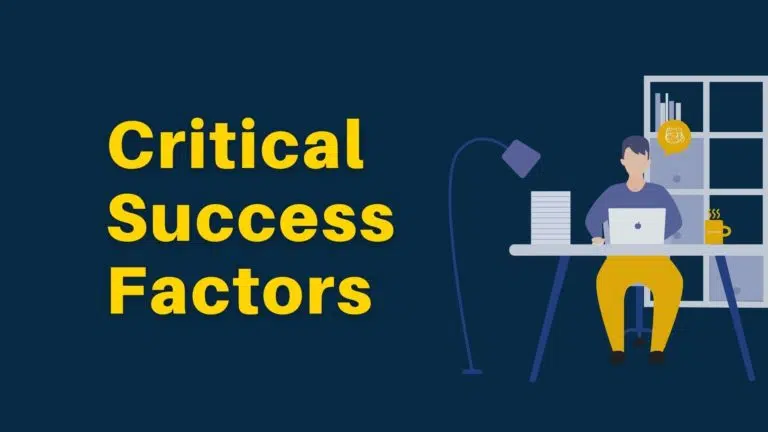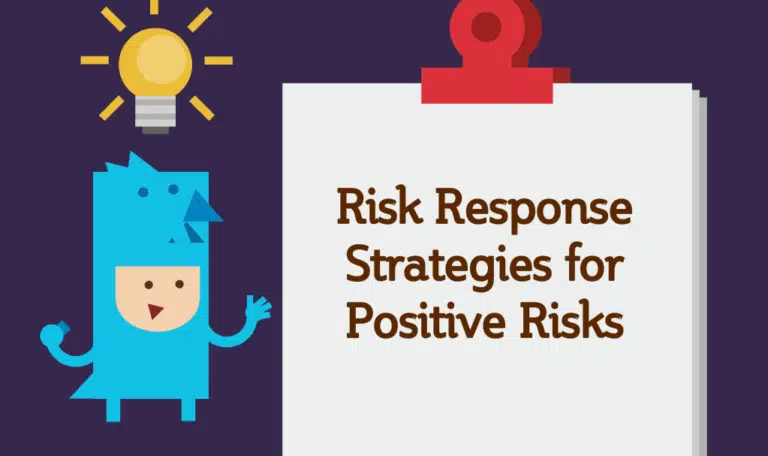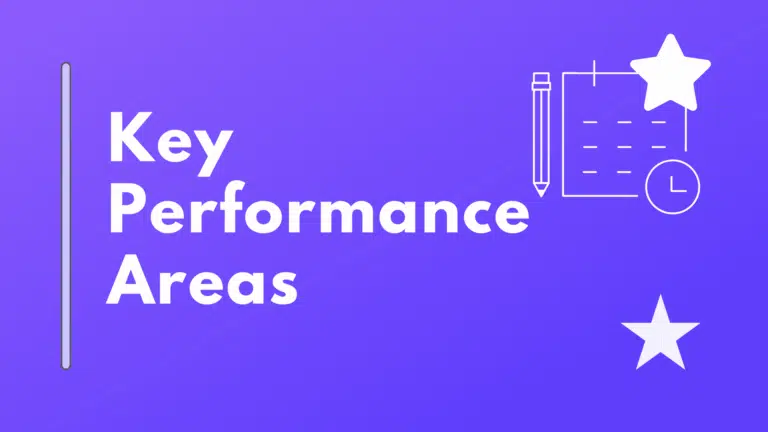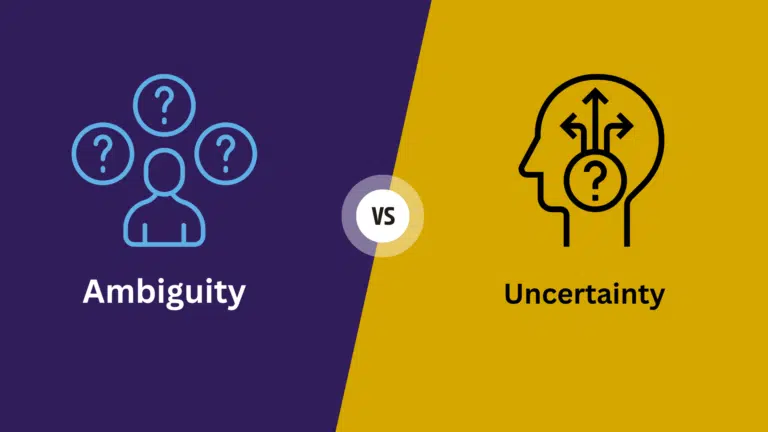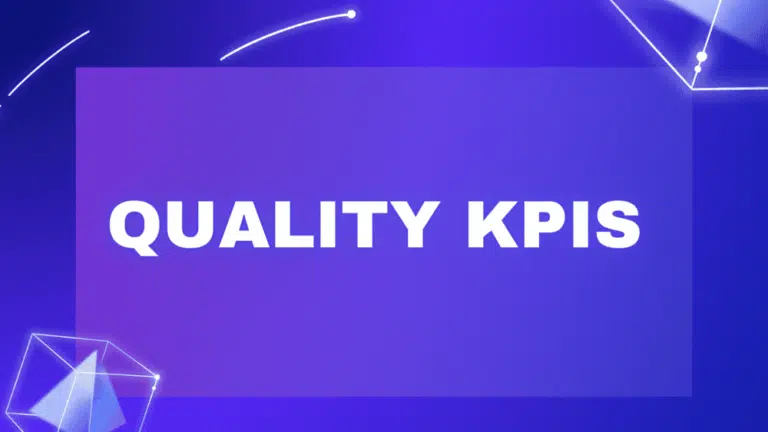I constantly receive emails asking, “Why PMP?” “Should I go for the PMP exam or not?”, “Is it worth going for it?”, “Which is better, PMP or any other certification?” etc.
This is a valid question with genuine concerns. Getting the PMP certification is not like buying a coffee from Starbucks or ordering something from Amazon.
To attain the PMP certification, you must go through a lengthy process and spend money on training, books, etc. More importantly, you will have to invest your time in this journey.
So you will be thinking about whether you should go for it.
I am writing this blog post to help you make a better, more informed decision. After reading this blog post, I hope you will have answers to your concerns.
Before we start, please understand that the PMP certification is for professionals with at least three years of project management experience if they are degree holders; otherwise, five years of experience in project management is mandatory.
You cannot apply for the PMP exam if you do not fulfill these conditions. However, if you are interested in moving your career in project management forward, you can write the CAPM certification exam, which is an entry-level exam for professionals that do not have project management experience.
I will explain the CAPM certification exam in my later posts. In this post, I assume you have the required project management experience and are struggling to make a firm decision.
Before I start discussing why you should go for the PMP certification, let us discuss in which cases it may not be a good option.
Why Not PMP: Why You Should Not Go for the PMP Exam
Although there is no reason for you not to attempt this exam, some circumstances may force you to choose other options. These options are as follows:
Case # 1: You Are Not Eligible to Apply for the PMP Exam
If you are not eligible to apply for the PMP exam, you cannot apply for it. In this case either go for the CAPM exam or fulfill the eligibility criteria and apply for it.
For example, if you lack experience, wait until you get your required hours of project management experience. If you are not educationally qualified, enroll in school, get a diploma or degree in any discipline, and then apply for the PMP exam.
Case # 2: You Are Not Involved in Project Management
If you are not involved in project management, you should not go for this certification, as the PMP certification is only for professionals working in project management.
For example, it’s not a good option if you are in sales, marketing, or production.
However, if you want to move into project management, you can start with the CAPM certification, which does not require any project management experience. Once you get some experience, you can apply for the PMP certification exam.
Case # 3: It is Not in Demand in Your Location
This situation is difficult, and you may have a dilemma about getting the PMP certification.
For example, you might live in a country where PMP is not in demand; rather, some other project management certification is valued, such as PRINCE2 in the UK.
In this case, you should get the other certification first, and when you have time, you can also try to get the PMP certification.
Case # 4: Your Company is Following a Different Methodology or Framework
If you are working in an organization that follows a methodology or framework other than the PMBOK guidelines, you may not want to go for the PMP exam and instead follow the company’s guidelines.
Some examples of other methodologies and frameworks are PRINCE2 and agile project management.
Why PMP: Why You Should Go for the PMP Exam
Now we come to the main point: why you should go for the PMP certification exam. There are plenty of reasons, some of them are as follows:
Reason # 1: You Will Be More Employable
Having a PMP title with your name increases the weight of your resume.
If you visit any job portal and search for project management jobs, you will notice that many employers mention that a prospective candidate should have their PMP certification. The professionals with PMP certification will be given priority. It helps employers to narrow down the candidate pool.
Even some employers have made it mandatory to have the PMP certification to apply for their jobs.
So, this is an obvious benefit of having the PMP certification.
Reason # 2: You Will Be Regarded as an Expert
Passing the PMP exam is not a piece of cake. To become a PMP, you must fulfill some eligibility requirements and pass rigorous testing.
This procedure includes attending project management training, reviewing a PMP exam reference book, and understanding the PMBOK Guide and its tools and techniques.
It makes you aware of the latest best practices used in project management.
Therefore, you will be known as a subject matter expert, and your peers will respect you just for being an expert.
Reason # 3: Your Credibility Will Increase
You are a PMP, meaning you better understand project management processes, tools, and techniques.
This establishes your credibility and clients’ trust in your skills. Your project will be more likely to be successful, and you will achieve your objectives easily.
You are also assumed to be a responsible person. To attain the PMP certification, you have attended a training program, you have studied and understood the PMBOK Guide, you have read a PMP exam reference book, and finally, you attempted and passed the exam.
This clearly shows that you are responsible, understand the value of your career, and are dedicated to career growth.
Reason # 4: Networking Opportunities Increase
PMI provides many networking opportunities if you are a PMP and are involved with PMI activities.
You can participate in various meetings, seminars, and presentations conducted by PMI local chapters and make connections.
You can also make friends using the networking features on projectmanagement.com.
All these connections are valuable and can help you achieve your objectives, whether they are solving a technical issue or looking for a job.
Reason # 5: Your Salary Will be Higher
Your PMP certification not only helps you get a job but also helps you receive a better salary.
Many surveys say that, on average, a PMP certification holder earns a higher salary than those not PMP certified.
A project management salary survey by the PMI shows a similar result.
So, if you want a better salary, get your PMP certification.
Reason # 6: Your Skills Will Always be Current and Growing
The PMP certification is valid for only three years, and after that, it expires unless you renew it by earning 60 PDUs. These PDUs are also known as professional development units; one unit equals one hour of learning.
Hence, to maintain your credentials, you must acquire new skills or update your existing ones.
You can also get PDUs by participating in various activities conducted by the PMI community of practice.
Reason # 6: Your Skills Will be Globally Recognized and Transferable
The Project Management Institute, USA, awarded the PMP certification, a globally recognized certification.
If you are a project manager with PMP certification, your skills will be globally recognized, and a prospective employer will not doubt your project management skills.
Moreover, project management skills are transferable. If you want to change your profession to another industry, you can do so easily, as the PMP certification is industry-independent.
Conclusion
Although many project management certifications are available, the PMP stands out from the crowd. It is the most famous and prestigious certification. Getting this certification is worthwhile. If you are involved in project management, regardless of your geographic location or the demand in your location, I strongly recommend you go for it as it equips you with the best knowledge and makes you aware of various tools and techniques you may not have heard of.
If you are not interested in the PMP certification, I recommend you go through the PMBOK Guide and understand the project management processes and various tools and techniques. This will help you be more effective on the job, understand why some tasks are done in a certain way, and suggest improvements if they do not follow the proper process.
Are you interested in the PMP certification exam? Regardless of whether you are or not, what are your reasons? Please share your thoughts in the comments section.

I am Mohammad Fahad Usmani, B.E. PMP, PMI-RMP. I have been blogging on project management topics since 2011. To date, thousands of professionals have passed the PMP exam using my resources.


